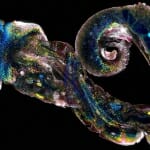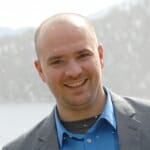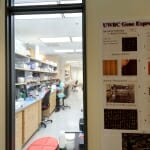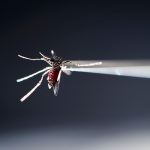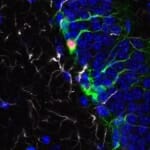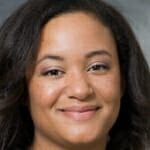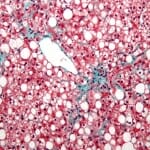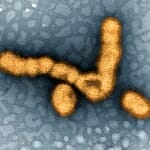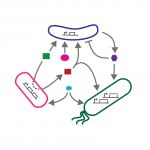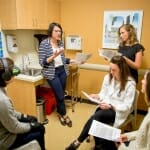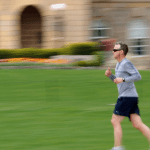Category Health & Wellness
Finding a weak link in the frightful parasite Schistosoma
More than 250 million people, mostly in Africa and Asia, have schistosomiasis, which kills an estimated 280,000 each year. “We don’t get that many aha! moments in our lives as scientists,” says a researcher. “This was one of them.” Read More
PATH Award offers promise for advancing biomedical science at UW–Madison
Assistant Professor John-Demian Sauer has been awarded a 2018 Burroughs Wellcome Award that supports biomedical scientists who are early in their careers and advancing fields in the basic biomedical sciences that are undervalued or underfunded. John-Demian Sauer Read More
The Ride gets research into gear
The Ride is a signature cycling event that premiered in September 2016, sending hundreds of riders across eastern Dane County to raise money for cancer research on the UW–Madison campus. Read More
Sussman to lead Genome Center of Wisconsin
Mike Sussman, longtime director of the UW–Madison Biotechnology Center, has announced that he is stepping down from that position to serve as director of the genome center. Chris Bradfield has been named interim Biotechnology Center director. Read More
Zika virus infection may multiply risk of miscarriage, stillbirth
Researchers at six National Primate Research Centers (NPRCs) combined results from individual studies to find that 26 percent of pregnancies in 50 monkeys infected with Zika virus during the first trimester of pregnancy ended in miscarriage or stillbirth. Read More
Study points researchers toward new therapies for fragile X syndrome
A UW–Madison study showed that the absence of the protein FMRP can unbalance critical molecular processes within adult brain cells and lead to the neural and cognitive changes seen in fragile X. Read More
Map helps guide public health decision-making
“We want this to be a tool that everyone can use,” said Amy Kind, an associate professor of medicine. “We hope this will be a catalyst to ... eliminate U.S. health disparities.” Read More
Mining notes from doctors and nurses could improve dementia diagnosis
Searching for clues in electronic health records could steer dementia patients to better treatment and follow-up examinations — especially patients from minority groups that tend to be less likely to receive specialized care. Read More
Lipids in blood and liver offer insights into metabolic health
Often, in order to identify a fatty liver, an invasive liver biopsy is required. Taking a blood sample would be a much simpler way to diagnose it. Read More
New toolkit guides professionals, others in scenarios involving dementia
A new toolkit from the School of Nursing prepares professionals, like pharmacists, as well as family members and other front-line staff to face and handle situations involving dementia patients. Read More
Five exercises to transform Bascom Hill into your own personal gym this summer
Measuring 850 feet long and, from the Park Street sidewalk to the base of the Lincoln statue, 86 feet tall, Bascom Hill as steep and long as it is picturesque. And, as evidenced by the unfortunate sweat stains in your 7:30 a.m. lecture, it’s a good workout. With these five exercises, it could also be your new gym. Read More
Barbershop health center will broaden its efforts to reduce health disparities with community grant
Aaron Perry, a former UW–Madison police officer who is living with diabetes, has spent years unraveling the complex relationship between black men and the world-class health care system in Dane County. He founded the non-profit Rebalanced-Life Wellness Association in 2007 to help other black men with diabetes and reduce health disparities in his community. Read More






